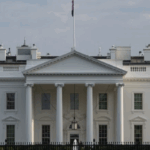Chinese electric vehicle (EV) giant BYD has surpassed Tesla in annual revenue for 2024, marking a major milestone in the intensifying competition between the world’s leading EV manufacturers.
The Shenzhen-based company reported a 29% increase in revenue, reaching 777 billion yuan ($107bn; £83bn), outpacing Tesla’s reported $97.7bn. BYD’s growth was fueled by strong sales of both electric and hybrid vehicles, with hybrids playing a key role in expanding its market share.
BYD’s Expanding Market Presence
BYD sold nearly as many fully electric vehicles as Tesla in 2024, with 1.76 million units compared to Tesla’s 1.79 million. However, when hybrid vehicle sales are included, BYD’s dominance becomes clear, with a record 4.3 million vehicles sold globally last year.
Further strengthening its competitive edge, BYD recently unveiled the Qin L, a lower-priced model designed to rival Tesla’s popular Model 3 in China. The Qin L starts at 119,800 yuan, significantly undercutting the Model 3’s base price of 235,500 yuan. This strategic move comes as Chinese consumers tighten their budgets amid economic challenges, including a property downturn, slowing growth, and mounting local government debt.
Technological Advancements and Market Strategy
Beyond aggressive pricing, BYD is pushing the boundaries of EV technology. Last week, company founder Wang Chuanfu introduced new ultra-fast battery charging technology, capable of charging an EV in just five minutes—far surpassing Tesla’s supercharger, which takes around 15 minutes. Additionally, BYD has rolled out its “God’s Eye” advanced driver-assistance technology across all its models at no extra cost, further enhancing its appeal.
These innovations, combined with strong investor backing, have driven a surge in BYD’s stock price, which has climbed more than 50% this year. The firm’s success has been supported by key stakeholders, including US billionaire Warren Buffett, who has been a long-time investor in the company.
Tesla Faces Political and Economic Hurdles
While BYD strengthens its position, Tesla faces growing challenges. CEO Elon Musk has been at the center of political controversy, particularly after being appointed head of the Trump administration’s Department for Government Efficiency (DOGE), which aims to reduce federal spending. His political interventions, including support for Germany’s far-right Alternative für Deutschland and criticisms of UK Prime Minister Keir Starmer, have sparked backlash.
Meanwhile, Tesla and Chinese EV manufacturers alike are grappling with trade restrictions. The US and European Union have imposed tariffs on Chinese-made electric vehicles, aiming to protect domestic industries. These measures could impact BYD’s expansion into Western markets, even as it gains ground globally.
The Road Ahead
As competition between BYD and Tesla intensifies, pricing strategies, technological advancements, and geopolitical factors will play key roles in shaping the EV market’s future. With BYD’s aggressive expansion and Tesla’s political entanglements, the race for EV dominance is far from over.
















